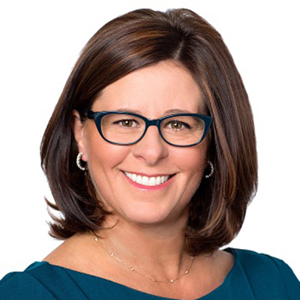What is the obligation of the ED as the front door and safety net for behavioral health patients?
DB: Improving people’s lives is our obligation as front line providers. It’s a noble cause to care for all patients, and behavioral health patients are often those who our society tends to ignore or overlook. As providers, we need to pay them special attention. It’s essential for us to understand and effectively treat all patients. Tailored solutions are needed for differing conditions, and providers cannot take a one-size-fits-all approach.
How are these patients putting such a strain on our EDs?
DB: In addition to the sheer volume of patients presenting to EDs, our ED care teams are not always equipped to treat patients experiencing a psychiatric emergency. Traditional ED processes are designed to triage patients with a physical emergency. We need to realize that psychiatric emergencies are physical emergencies, and new processes are needed to effectively assess, diagnose, and treat these patients.
What is the impact on the patient, the provider, and the hospital?
DB: Because processes for treating behavioral health issues are often fragmented and not clinically integrated across the department, patients and providers suffer. Satisfaction plummets, and providers feel helpless, which leads to burnout. Ultimately, these consequences compound and undermine the overall performance and economics of the ED.
How can ED care teams be empowered to deliver quality behavioral healthcare?
DB: EDs need to become better integrated to ensure training and processes are appropriate for all patients. Bringing together specialists and integrating care teams is key. Instilling a culture of support is also critical, allowing the team to provide support for each other and the patient from both a treatment and overall experience standpoint.
When we have processes that enable care for ALL patients, we reinvigorate healthcare providers and staff to experience passion for their work and their noble cause.
What does the behavioral healthcare delivery model of the future look like?
DB: It’s an integrated model bringing together specialist teams across disciplines to better serve all patients. This type of holistic approach results in higher ED throughput and inspires a highly engaged staff. It also helps patients know on a human level they’re receiving the most appropriate care possible for their conditions.
Vituity practices in over 250 EDs across the country. How has the rise in this patient population affected your mission and business strategy? How have organizational priorities shifted?
DB: Our mission has consistently been to empower healthcare providers to deliver exceptional care in their local communities. We’re always looking for solutions that go beyond traditional ED care.
In recent years we’ve expanded our acute psychiatry focus by bringing specialists onto our leadership team, such as Dr. Scott Zeller who pioneered the EmPath Unit. We also created an integrated solution designed to help EDs address the day-to-day needs of treating behavioral health conditions that includes recommended best practices in acute behavioral healthcare and policies for opioid and agitation management. The success we’ve seen with this approach has been inspiring. It feels good to see all patients treated with the respect and dignity that they deserve.
Denise Brown, MD, is Chief Growth Officer for Vituity. Watch her recent appearance on the ZDoggMD Incident Report for additional insights into the future state of behavioral healthcare.
As a physician-led and -owned, multispecialty partnership, Vituity has driven positive change in the business and practice of healthcare for nearly 50 years. Our more than 3,500 doctors and clinicians serve over 6.4 million patients annually, spanning the entire acute care continuum, including: emergency medicine, acute psychiatry, acute neurology, hospital medicine, critical care, anesthesiology, acute care surgery, telehealth, post-acute care, and outpatient medicine






















